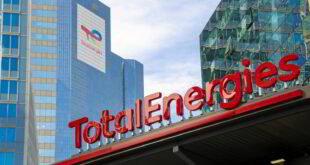Eight energy companies including BP, Shell and Total have agreed to apply a common set of “energy transition principles” across their businesses, including a commitment to industry decarbonisation.
Six principles have been devised in collaboration with with investor lobby group Climate Action 100+. The eight companies comprise the three European majors, US firm Occidental Petroleum, Italy’s Eni, Norwegian state-controlled Equinor, Spanish company Repsol and Portugal’s Galp.
The agreed principles are: to work to reduce emissions from their own operations, to publicly support the goals of the Paris Climate Agreement, to work with governments to develop low-carbon energy systems, to support carbon capture utilisation and storage (CCUS) technology, to provide greater transparency around climate change risks, and to report trade association memberships and how they align with their climate goals.
“The principles will act as a framework for actions leading energy companies are taking together, as well as a platform for collaborating with wider stakeholders,” the chief executives of the participating companies said in a group statement.
The companies involved are free to decarbonise according to their own strategies, but their goals vary. BP, Shell, Total, Occidental, Equinor and Repsol have all committed to a goal of net-zero emissions by 2050, while Eni has set a target of reducing net emissions by 80pc by 2050. Galp hopes to be carbon neutral in Europe by 2050 and intends to dedicate over 40pc of its future investment to energy transition opportunities.
Most of the companies involved have already invested in CCUS technology. Occidental has the largest carbon management business in the world, storing around 18mn t/yr of CO2, while Total said it dedicates 10pc of its research and development budget to developing CCUS technology.
Equinor today awarded two contracts for its Northern Lights Project, a joint venture with Shell and Total that will develop carbon capture solutions in Norway. The project will create 1.5mn t/yr of carbon storage capacity and is due to be completed in the fourth quarter of 2024.
Total, BP, Eni, Equinor and Shell are also part of the Net Zero Teesside project, which is the UK’s first commercial scale CCUS project. It will have the capacity to capture up to 10mn t of CO2 emissions when it launches in 2030.

 Iran Energy News Oil, Gas, Petrochemical and Energy Field Specialized Channel
Iran Energy News Oil, Gas, Petrochemical and Energy Field Specialized Channel



